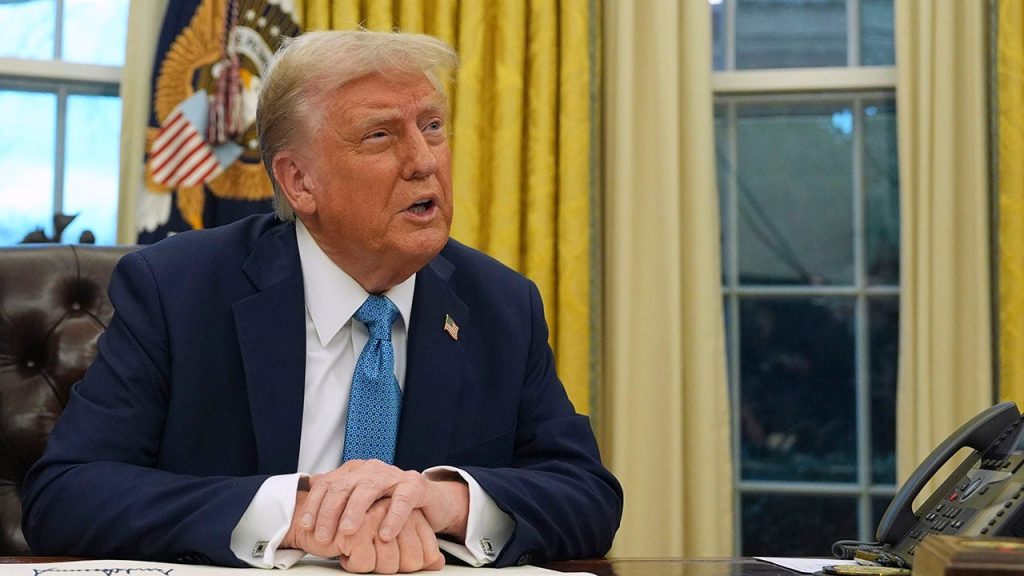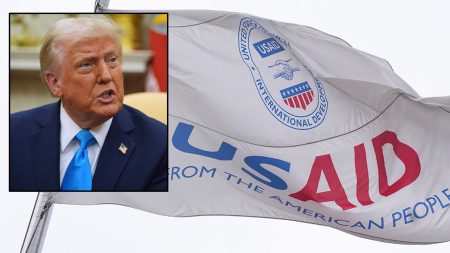Former President Donald Trump’s proposition for Canada to become the 51st state of the United States ignited a firestorm of controversy, reflecting his long-standing grievances with Canada’s trade practices and his unconventional approach to international relations. Trump’s argument rests on the premise that the U.S. heavily subsidizes Canada, rendering the country economically non-viable without American support. He claims the U.S. has no need for Canadian resources, boasting of America’s self-sufficiency in energy, automotive production, and lumber. This assertion, however, disregards the complex interdependence of the two economies, particularly in areas such as energy trade and supply chains integrated across the border. Trump touted the supposed benefits of statehood for Canada, including lower taxes, enhanced military protection, and exemption from tariffs, framing the proposal as a benevolent offer rather than an act of economic coercion.
The backdrop to this surprising proposition is Trump’s ongoing trade disputes and his perception of unfair trade practices by Canada. He has repeatedly criticized Canada’s trade policies, accusing the country of exploiting the U.S. This narrative culminated in the imposition of tariffs on Canadian goods, justified by Trump as a necessary measure to combat drug trafficking and protect American interests. The tariffs targeted a wide range of Canadian imports, including energy resources, significantly impacting bilateral trade. Trump’s claim that Canada facilitates drug trafficking across the border added another layer of complexity to the already strained relationship. This accusation, however, lacked substantial evidence and was met with strong denials from the Canadian government. The interplay of trade disputes and accusations of complicity in drug trafficking underscored the deterioration of U.S.-Canada relations under the Trump administration.
Trump’s suggestion of annexing Canada echoes earlier sentiments expressed through economic pressure tactics. He has repeatedly hinted at the idea of using tariffs and other economic levers to force Canada into accepting his demands, demonstrating a strategy of leveraging economic power to achieve political objectives. This approach has been met with resistance from Canada, leading to retaliatory tariffs and a further escalation of trade tensions. The underlying theme of Trump’s approach is a perceived power imbalance between the two countries, with the U.S. holding the dominant position. This perception informs his belief that Canada is ultimately reliant on the U.S. and would be compelled to succumb to economic pressure.
The Canadian response to Trump’s proposal and tariff impositions was swift and decisive. Prime Minister Justin Trudeau and other Canadian officials vehemently rejected the notion of annexation and condemned Trump’s characterization of Canada’s economic dependence. They retaliated with counter-tariffs on a range of U.S. goods, signaling their resolve to defend Canadian interests. The Canadian government emphasized the strong economic ties between the two countries while also asserting Canada’s sovereignty and independence. This response reflects a broader trend of pushback against Trump’s protectionist trade policies and his assertive stance in international relations.
The trade dispute and annexation proposal sparked a wider debate about the future of U.S.-Canada relations. Experts and analysts weighed in on the potential consequences of a prolonged trade war and the implications for the deeply integrated economies of the two countries. The discussion centered on the potential economic damage, disruption of supply chains, and the erosion of long-standing political and cultural ties. Concerns were raised about the impact on industries reliant on cross-border trade, as well as the potential for spillover effects on other sectors. The broader context of North American trade and the implications for the renegotiation of NAFTA (North American Free Trade Agreement) also came into focus.
The Trump era marked a turbulent period in U.S.-Canada relations, characterized by trade disputes, accusations, and unconventional proposals. The annexation suggestion, while outlandish, underscored the underlying tensions and the challenges facing the bilateral relationship. The long-term impact of these events remains to be seen, but they undoubtedly left a mark on the dynamics between the two countries. The future course of U.S.-Canada relations will likely depend on the policies of subsequent administrations and their approach to trade, security, and diplomatic engagement. The complex interplay of economic and political factors will continue to shape the relationship, requiring careful navigation by both sides to rebuild trust and address shared challenges.










